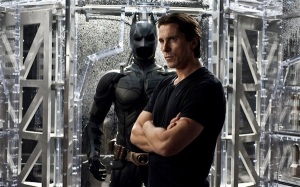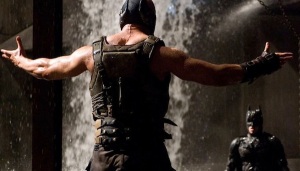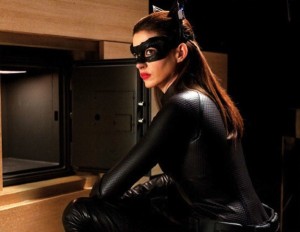Originally Posted February 19th, 2012
Imagine, if you will, a man of mystery. He’s someone you hire, a mercenary of sorts, and he’s often employed by powerful and wealthy corporations. His job takes him around the world to fulfill contracts that usually involve gunfights, car chases and explosions. And he’s known only by a codename. I’m of course talking about McG, director of two Charlie’s Angels pictures, a mostly tolerable football melodrama, and the red-headed stepchild of the “Terminator”franchise, Terminator Salvation.
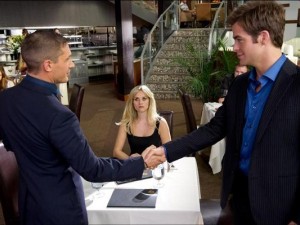
McG’s style, so to speak, emphasizes the kind of shallow and insubstantial gratification you often associate with another brand of mass consumption starting with "Mc". So it’s really not surprising that his latest film, This Means War, continues the tradition of all-encompassing vacuousness. The real shame is that even without the shackles of franchises and true stories, McG still decided to make This Means War play like a bland remake/sequel to an entire genre; specifically, bad romantic comedies designed for an insidiously strategic strike on those deflated by another unfulfilling Valentine’s Day.
The vitriol of that sentence might have some of you pumping the brakes on your evening plans but others might be a bit confused. Isn’t this that movie about the two spies who abuse their professional skills and gadgets in order to sabotage one another when they wind up dating the same girl? That statement is all true, but the spy element is so brutally squandered, it’s practically an afterthought. Prepare yourself for a film straight out of a parallel universe where Stephanie Meyer cribbed most her ideas from Ian Fleming instead of Anne Rice.

It’s the age old dilemma that targets two of the four quadrants of film marketing, while flipping off the other two: which ridiculously hunky guy do I want? The one posing that question is Lauren Scott, a well-off urbanite who just can’t seem to get her love life together, despite the fact that she has a stable job, good friends, and is played by the obscenely cute Reese Witherspoon. Looks alone aren’t an indicator of relationship potential, but remember, this is a McG production, so physical attractiveness is the only trait of interest.
The beau’s vying for Mrs. Scott’s affections are the equally stunning Tom Hardy and Chris Pine, best friends and co-workers, but polar opposites so as to cover as wide a swath of romantic tastes as possible. Pine is the libidinous playboy alpha male with a tragic past (think Capt. Kirk, minus the heroism), who lives under a literal glass ceiling that’s somehow more demeaning than the figurative one. Hardy is then tasked with playing the sweet but sensitive yin to Pine’s cock-sure yang, complete with an adorable son and an ex-wife that he still holds a flame for. Is it a spoiler when basic character descriptions practically scream out how the film’s big “quandary” will be resolved?
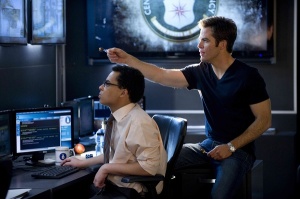
Now there’s actually something grimly funny about the CIA funding an expensive and clandestine pissing contest, supported perhaps by the film’s blithe disregard for the morality of misappropriated public funds, institutional use of torture, and the existence of a surveillance state. Intercepting every phone message and private conversation a woman has is really just a logical progression of Facebook stalking in the writer’s eyes. But make no mistake; the spy trappings are really just there to make the boys look dreamier by virtue of having the world’s sexiest job.
Granted, McG’s opening action sequence atop a Hong Kong hotel is such a blur of messy choreography and poor CGI that you understand why he’d opt to fill the movie with date scenes instead of shootouts. Lauren’s double trouble all but causes every scene to repeat itself, once with Hardy’s Tuck, and then again with Pine’s Frank. The dates are designed as eye candy, plain and simple, whether they’re set in one of those clubs that only exist in liquor commercials, an intimate warehouse filled with Gustav Klimt paintings, or at Lauren’s tooth-rottingly colourful office. It would remind you of a circus, were there not already a carnival date scene that proves clowns know how to paint using earth tones.
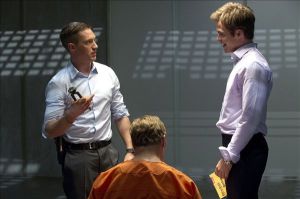
Obviousness is the film’s cardinal sin, the bad cologne pervading every clichéd romantic entanglement and cookie-cutter action sequence. When Lauren keeps a paintball gun levelled strictly at the crotch-ular region, is there any question as to the safety of Tuck’s genitals? Even the soundtrack is employed as a giant slap in the face; as if a montage of Frank and Tuck interfering with each other would leave audiences confused as to their intent, The Beastie Boys’ “Sabotage” grinds away in the background.
At least the leads look like they’re enjoying themselves, so if nothing else, This Means War avoids coming off as desperate. It’s certainly guilty of pandering at every comedic beat and never has the gall to pull the trigger on an idea that’s insightful or original, but then again, fast-food filmmaking like this is designed for ease of digestion. It’s perhaps because of its own bottom-feeding ambitions and disposability that This Means War can stay safely among other cinematic confectioner, as easily forgotten as it is consumed.
2 out of 5
Directed by McG
2012, USA




